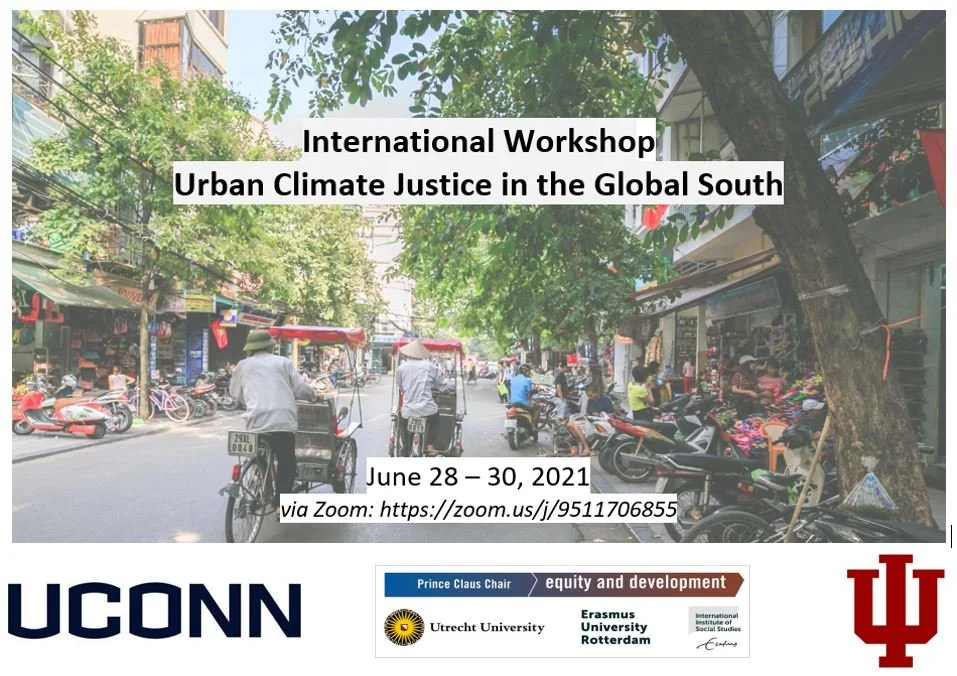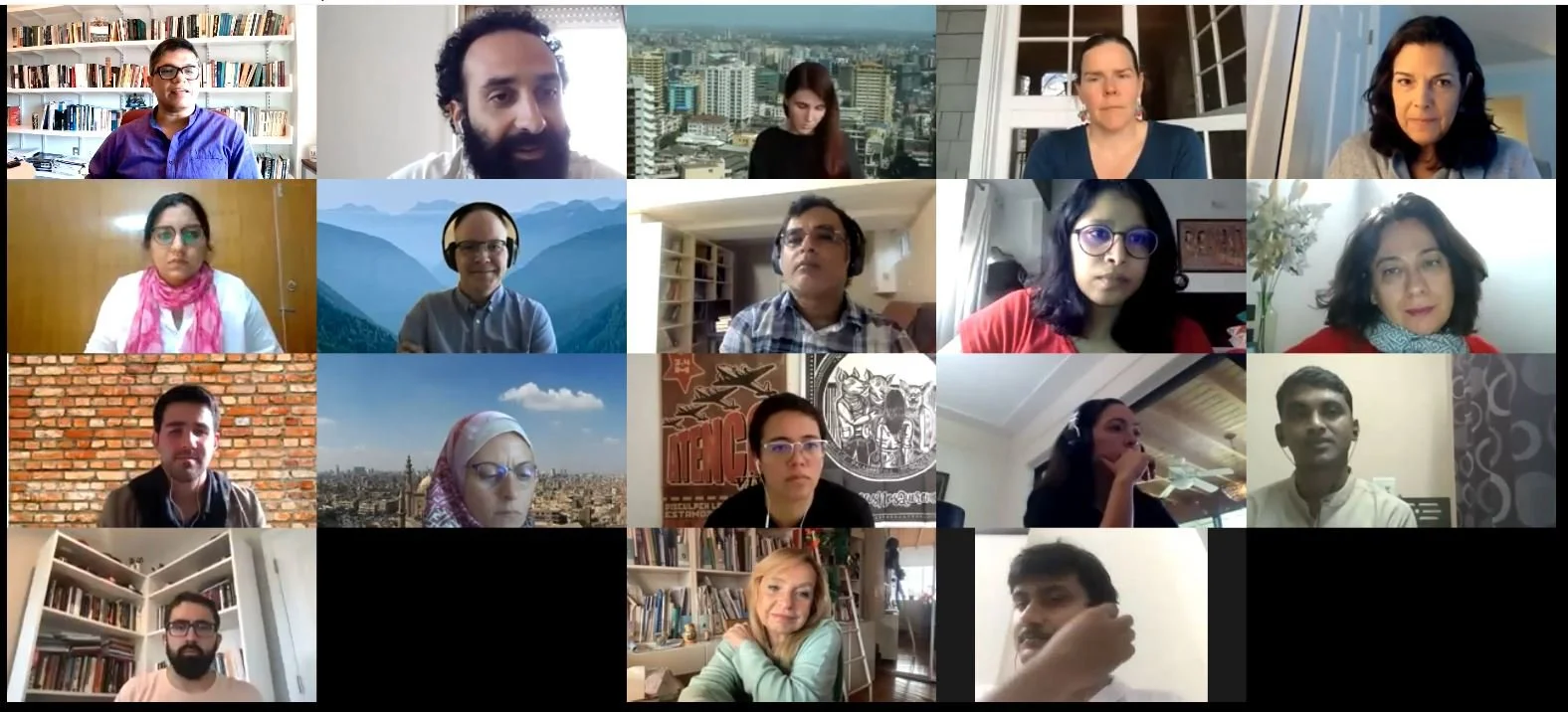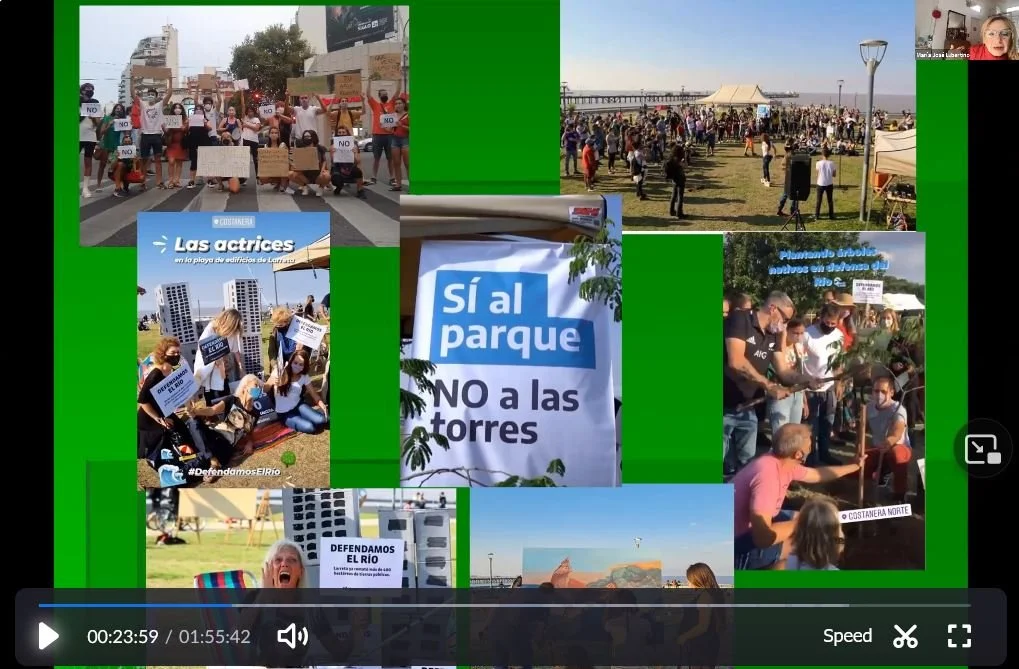Urban Climate Justice: Insights From a CJN International Workshop June 28-30, 2021
The concept of climate justice emerges from an attempt to understand that the root causes and the impacts of climate change are tied in social inequalities. Once this genealogy is understood, it becomes easier to define pathways to climate justice.
All spaces have a rich and poor divide -- while we have the Global South and the Global North, there is a Global South in the North, and a North in the South, as well as spaces of wealth and poverty in every state in every country. In India, for instance, the deeply entrenched caste system has ensured that wards within villages remain divided on the basis of caste. Similarly, because of the legacies of red-lining and zoning laws, U.S. cities are often segregated into black and white neighborhoods.
In practice, this means that access to basic resources --- food, water, air-conditioning, emergency shelter-- remains drastically disproportionate; and that the neighborhoods and communities with an already shortchanged access to resources bear the maximum brunt of the climate crisis.
The Climate Justice Network organized a three-day International Workshop between 28th-30th of June to explore the subject of urban climate justice. This was supported by grant funds from the American Political Science Association Special Projects Award, the University of Connecticut, Indiana University, and the The Prince Claus Chair in Development and Equity at Utrecht University. Research scholars from Chile, Argentina, Mexico, Puerto Rico, United States, Germany, Netherlands, Ghana, Egypt, South Africa, and India presented their case studies elaborating how a lack of access to resources is connected to climate injustice in urban spaces, and further analyzing climate justice initiatives taken up by various actors within these spaces.
The case studies presented included, for instance, the struggles of community groups across California and in Mexico City seek to ensure access to safe drinking water in the context of racist infrastructural policies; grassroots struggles in Buenos Aires and Chennai to protect green spaces and rivers against urbanization; the initiative in Sunset Park, New York to stop acontroversial rezoning plan and develop their own socially-just climate adaptation and transition plan; the challenges of youth climate justice mobilizations in Ithaca; the role of mutual aid networks in just recovery processes after colonial-climatic disasters in Puerto Rico; the invisibilized struggles for sustainable mobility from bicycle riders in Delhi; citizens’ diverse strategies for achieving state accountability in the context of unequal electricity provision in Ghana; and the participatory design of low-tech climate adaptation measures in informal settlements in Cairo.
The workshop contributors also probed the dilemmas and challenges movements face in being inclusive towards all communities and the respective strengths of self-organization vis-à-vis engagement with policy processes. The deliberated about the extent to which immigrants and the poor community groups are represented in local government decision-making on land use change when industrialists or municipal boards seek to take over. Finally, the participants reflected on the limitations of transnational non-profits in intervening in situations about which they lack a deep understanding and appreciation for existing local efforts.
The case studies showcased a deep understanding of local contexts, but the workshop also revealed the following cross-cutting connections and themes that resonate across regions: the crisis of representative democracy, the growing and compounding inequalities in the context of the climate crisis, and, the urgent need for urban transformations and for better economic, environmental and social justice evaluations of infrastructure projects. In terms of the initiatives, the contributors noted that collective efforts to advocate for climate justice need to engage with a diverse range of actors . Some examples showed the materialization of broad, popular, inter-sectional alliances, while others showed the challenges of achieving such coalitions. The role of art and artists in these movements was identified as an important but understudied issue. The contributions showed the importance of engaged/participatory field methodologies and a normative commitment to climate justice on the part of the researchers.
In conclusion, the workshop offered essential material for any researcher, activist or journalist looking to form a better understanding of what makes climate justice movements work, and the problems they often run into. The case studies will eventually be compiled in a book targeted for the general public. The case studies will also be converted into teaching materials for K-12 teachers, university faculty, and students. Check out our Climate Justice Network for updates!



